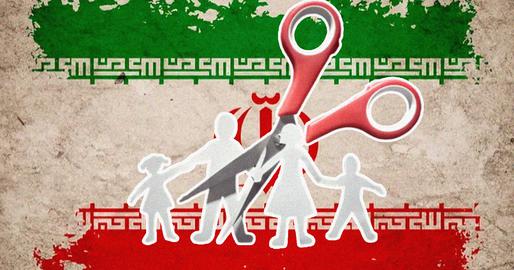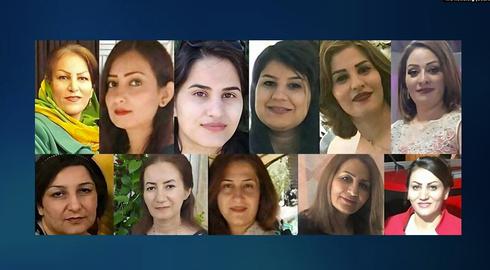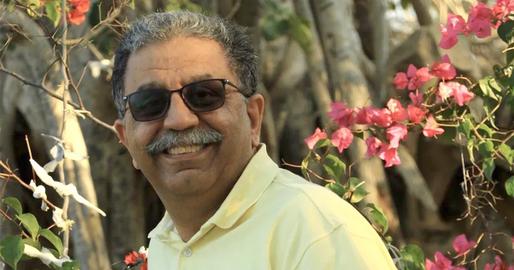Over the past few decades, the Islamic Republic has employed various targeted methods to suppress Iranian citizens, aiming to silence political and civil activists and quash citizen protests.
In a recent development, IranWire has obtained a document revealing a court in West Azarbaijan province voting to separate an individual from his wife, citing the conviction of her husband, a former political prisoner on propaganda charges.
This unprecedented verdict represents a new level of suppression, as it entails issuing extrajudicial sentences and meddling in the most intimate aspects of citizens' lives.
IranWire delves into the case of Sajad Shahiri, conducting interviews with eight current and former political prisoners and examining the situations of 22 political prisoners.
To safeguard the privacy of the individuals involved, IranWire has used pseudonyms in this report.
Azerbaijan: It All Started During the 2019 Protests
According to a document received by IranWire, the Court of Appeal of West Azerbaijan province has issued an unprecedented verdict.
Based on the conviction of a civil activist in a political case, the court has voted to divorce this citizen from his wife.
Javad Mehdizadeh Barani and Sabarali Chabok, the advisors of the 26th branch of the Court of Appeal of West Azarbaijan province confirmed the decision issued in the family court.
Referring to the conviction against Sajad Shahiri on the charge of "propaganda against the Islamic Republic," they voted to separate the wife of this former political prisoner from him.
Sajjad Shahiri, a civil activist living in Naqdeh in West Azarbaijan province, was sentenced to six months in prison in February 2020 by the first branch of the appeals court of this province.
He was released from Naqdeh prison in June 2020, after enduring his imprisonment.
The document issued by the 26th branch of the Court of Appeal against Sajjad Shahiri states: "To verify the husband's violation of the terms of the contract and in consideration of the defendant's confession of conviction for propagandizing against the holy system of the Islamic Republic...
In consideration of the statements of the wife's lawyer based on the fact that the wife's family are members of the IRGC and therefore such accusations are considered against the dignity of the wife's family, the court, based on Article 358 of the Civil Procedure Code, rejects the usual appeal and approves the requested appeal."
IranWire investigations reveal that the explicit reference of the courts of the Islamic Republic to political convictions to issue a divorce verdict is unprecedented or at least rare in Iran.
Additionally, IranWire's interview with a mutual friend of Sajjad Shahiri and his wife sheds light on new aspects of the process of issuing this verdict.
The friend, reflecting on the understanding and interest between the couple in the early years of their acquaintance, stated that differences in this family emerged after Sajjad's arrest in 2019.
"Sajjad in 2019 and after leaving the Sahand Stadium in Tabriz during the tractor game was arrested."
The source emphasized that the interrogators of the Ministry of Intelligence had repeatedly offered Sajjad Shahiri cooperation with this institution during his arrest and afterwards, threatening to cause problems in his private and professional life if he did not cooperate. These threats were carried out one after the other when Shahiri refused to accept the offer of cooperation.
"Shortly after Sajjad's release from the detention center, Sajjad's father and brother-in-law, one of whom works in IRGC intelligence and the other is a retired IRGC officer, pressured their daughter to divorce him at the instigation of the interrogators who were simultaneously calling Sajjad.
"They instigated numerous verbal conflicts between the families, prevented Sajjad and his wife from meeting, deprived him of seeing his child for a long time, imposed significant financial costs on him, and ultimately, by exerting influence on the judiciary, despite the absence of any implied contractual condition, facilitated the divorce of these two young couple."
IranWire investigations demonstrate that the use of the suppression model of forced divorce against civil activists is not limited to an exceptional case or confined to a specific geographical region in Iran.
Tehran Has Most Cases of Forced Divorces
"Judge Ali Razini, who confirmed and aggravated my death sentence in the appeals court, told my ex-wife that your husband is the son of the devil, divorce him and marry me so that you can understand the taste of happiness."
These are the words of Soheil Arabi, a former political prisoner.
This photographer and blogger was arrested in 2015, enduring months of solitary confinement and repeated physical and mental torture.
His family members were also targeted by security agencies. Ultimately, in a confusing case without a fair trial, he was sentenced to death, a sentence later commuted to imprisonment and additional punishments.
Currently living in exile in Borazjan city in Bushehr province, Arabi is one of the victims of forced divorce.
In an interview with IranWire, this human rights activist revealed new dimensions of interrogators' use of forced divorce.
Apart from recounting the proposal from Judge Ali Razini to his ex-wife, Arabi shed light on the mechanism behind the implementation of forced divorce by interrogators.
"The interrogators repeatedly claimed that my wife was in a relationship with my friends, attempting to humiliate and harass me.
Simultaneously, they told her that I had betrayed her. These lies were repeated incessantly. They also spread these falsehoods to my wife's family, attempting to poison their perception of me. They made every effort to destroy our family."
Arabi continued by recalling the arrest of his mother, Farangis Mazloum, who was imprisoned for defending her son.
He described how, during his hunger strike, the interrogator threatened to arrest more family members until he broke.
He described the interrogators' efforts to sever the family and emotional ties of political and civil activists as deliberate and purposeful.
"The interrogators use every means to break the accused. When one spouse is imprisoned, phone calls to the family are cut off, while physical and mental torture continues.
This, coupled with insinuations of betrayal by the spouse, places immense psychological pressure on the prisoner."
Arabi recounted the forced divorce of "Saeed" (pseudonym), another political prisoner who was encouraged to divorce by Mahdi Khodabakhshi, a security supervisor.
Khodabakhshi suggested to Saeed's wife that she divorce him and become his wife, claiming to offer what Saeed couldn't.
In addition to the repeated false claims by interrogators and judicial authorities regarding the infidelity of spouses, outside the prison, individuals face successive summonses, legal cases, threats, social exclusion, and numerous financial and security problems.
Ultimately, in some cases, one party in the relationship may conclude that divorce could alleviate some of the repression against them.
This event provides interrogators with a new means to inflict psychological torture on the detainee and deals a severe blow to their psyche.
Soheil Arabi described the intervention of security and judicial institutions in the private relationships of political and civil activists as a common practice in the Islamic Republic.
Recalling one of his former inmates, he stated: "The slanders and lies that interrogators told me about my ex-wife were also fed to Sajjad.
They attempted to humiliate and harass him by falsely claiming that his wife was with a religious activist, despite their ages not aligning with these allegations."
Arabi also mentioned Alireza, Farhad, and Mohammad (pseudonyms), former inmates in prison, whose wives, under similar pressure and harassment from security agents and judicial authorities, ended up divorcing these political prisoners.
While Arabi remained imprisoned, his wife divorced him.
He told IranWire that due to his ex-wife's opposition, he has been deprived of seeing his daughter since 2018.
Investigating the details of the cases of at least seven other current and former political prisoners in Tehran province who separated from their spouses after being arrested reveals that all of them have encountered some form of repression involving forced divorce.
Among the seven cases examined, two civil activists are still incarcerated.
Forced Divorces is Common Across Iran
Examining the cases of nine political prisoners in Khuzestan, Sistan and Baluchistan, and Kurdistan, who either separated from their spouses during their imprisonment or faced security pressure to dissolve their family relationships, reveals that the model of forced divorce is employed across Iran.
However, due to the varied cultural and social contexts in different regions of Iran, the mechanism and effectiveness vary.
The account of Karim Barvayeh, an Arab civil and political activist from Ahvaz, detailing his detention, imprisonment, and the security pressures endured by him and his family, confirms the use of the suppression model of forced divorce in Khuzestan.
Barvayeh was violently arrested at his home in Ahvaz in 2018, subjected to months of solitary confinement, enduring physical and mental torture, and denied access to legal representation, and family visits.
Without a fair trial, he was sentenced to imprisonment and one year of exile.
Describing the torture he endured during detention, he affirmed that one method used by interrogators to persecute him was threatening and pressuring his wife and family.
"Interrogators prevented my phone calls to my family and threatened my wife, insisting she should divorce me," he said.
Ali Majdam and Habib Daris, political prisoners facing death sentences and currently detained in Shiban prison, are two other Arab citizens whose wives have been pressured by interrogators to separate from them.
In 2019, Daris, Majdam, and at least 31 other Arab citizens were arrested in a joint case.
Simultaneously, the agents apprehended the wives and children of these two political defendants to exert pressure on them.
Daris, Majdam, and other defendants in this case, six of whom have been sentenced to death and six others to 70 years in prison, all endured severe physical and mental torture during detention to extract confessions.
In an interview with a former inmate of Daris and Majdam, IranWire learned that the wives of these two prisoners facing death sentences were also assaulted and threatened with divorce by interrogators.
Interrogators often beat them in the detention center in front of Daris and Mojdam.
The story of the separation of a former Baluch political prisoner from his wife after his arrest also confirms the use of forced divorce against civil and political activists in restive Sistan and Baluchistan.
Meysam (pseudonym) recounted in an interview with IranWire: "From the first interrogation, the interrogator began to insult my wife, mother, and sister.
He repeatedly mentioned the names of my friends, falsely alleging that my wife was with them and describing fabricated details.
Enduring the constant insults to my mother and the false accusations against my wife was much more difficult than physical torture."
Meysam is from a small town in the southern region of Sistan and Baluchistan.
According to this former political prisoner, a few days after his arrest, his wife left their home and sought refuge at her father's house.
After some time, she was divorced in absentia.
"The divorce of my wife shattered me. I attempted suicide once in prison. I felt like I was losing my mind.
Upon my release from prison, I discovered that the same lies told by the interrogator about my wife were circulating in the city.
My wife, being dignified and noble, couldn't endure the slander, so she had to leave our city with her family."
Analyzing the accounts of Baluch, Kurdish, and Arab civil and political activists reveals that the security institutions of the republic exploit the disruption of family and interpersonal relationships in these regions as leverage against political and civil activists.
In many parts of Iran, a woman's divorce is not merely a private matter confined to the relationship between two individuals, but rather a social issue that can involve multiple extended families and sometimes plays a significant role in the dynamics between two large clans.
The traditional and religious context in Iran, coupled with the public's limited understanding of the tactics and strategies used by security institutions to suppress civil and political activists, perpetuates this targeted harassment in a vicious cycle.
These rumours inflict double the suffering on civil activists and their spouses.

































comments